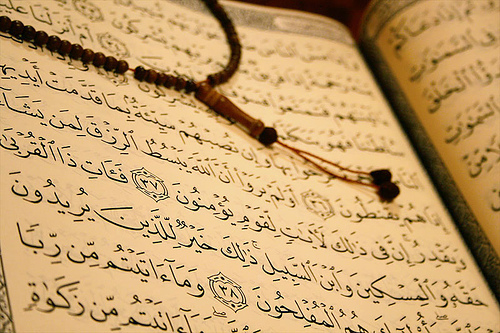
Wikimedia Commons public domain
Matthew Wheeler kindly brought this BBC story, from back in June 2016, to my attention:
“Pakistani Muslims build Christian church”
May there be many more such stories. And may we hear about them.
***
Just a reminder that I’ll be speaking tonight on “Mormons and Muslims.” The fireside is aimed at singles, but I doubt that the organizers would turn couples away at the doors. It will take place at 7:00 PM, in the chapel — a stake center, I think — at 828 West 1600 North, Orem, UT.
***
A nice article from Taylor Halverson:
“The Surprising Lesson My Muslim Friends Taught Me About Scripture Study”
I remember a conversation with a Palestinian Muslim student that occurred not long after I first began teaching at BYU. He was disgusted by the Mormon students around him because, he said, they plainly didn’t take their religion seriously. How, I asked him, had he come to that conclusion? He told me to just look at the way they treated their scriptures. They allowed their scriptures to become dog-eared. They put them on the floor under their chairs when they sat down. They stacked other books on top of them. They wrote in them and marked them up with magic markers. They would read them casually, while munching on snacks. Sometimes, they read them while dirty from working or hiking.
A Muslim would do none of these things to the Qur’an.
I explained to him that these represented cultural and theological differences, not indifference or irreverence. That, to us, while the texts are sacred, the physical books in which they occur are simply objects of paper and glue (and sometimes leather or a leather-substitute) that aren’t, in and of themselves, holy. I think I helped him a bit. I certainly know that, a few years later, when I ran into him in the Middle East after his graduation, his attitude toward BYU had changed markedly. (He described himself as sounding, in his conversations with fellow-Palestinians, like “a BYU recruiting brochure.”)
These differences can even inflame political passions: Many will recall, some years ago, when there was Muslim outrage about supposed American mistreatment of copies of the Qur’an at Guantanamo Bay. We Christians don’t much care, when a Bible or another scriptural text becomes worn out or falls apart, what happens to it. But Muslims care a great deal. Much like a worn out American flag, a worn out copy of the Qur’an should be treated with respect and disposed of according to certain rules. (Jews feel the same way about Torah scrolls. Such scrolls aren’t simply tossed into the dumpster.)
I don’t advocate that Latter-day Saints adopt all of the Muslim rules for how to treat scriptural texts. I’m perfectly fine with marking up inexpensive copies of the Book of Mormon, for example. (I’ve done it a lot myself.) But I do agree with Taylor Halverson that we can profitably be challenged by, learn from, and be inspired by Muslim reverence for their holy book. They approach the Qur’an with literally clean hands and, when they read from it, they first utter a brief prayer. Then, when they’re finished with their reading, they again pray briefly. They try to mark off their time with their scripture as separate, holy time, and even to find an appropriate physical place for their interaction with the Word of God.
There’s much to be learned from sympathetically observing the practices of others.










